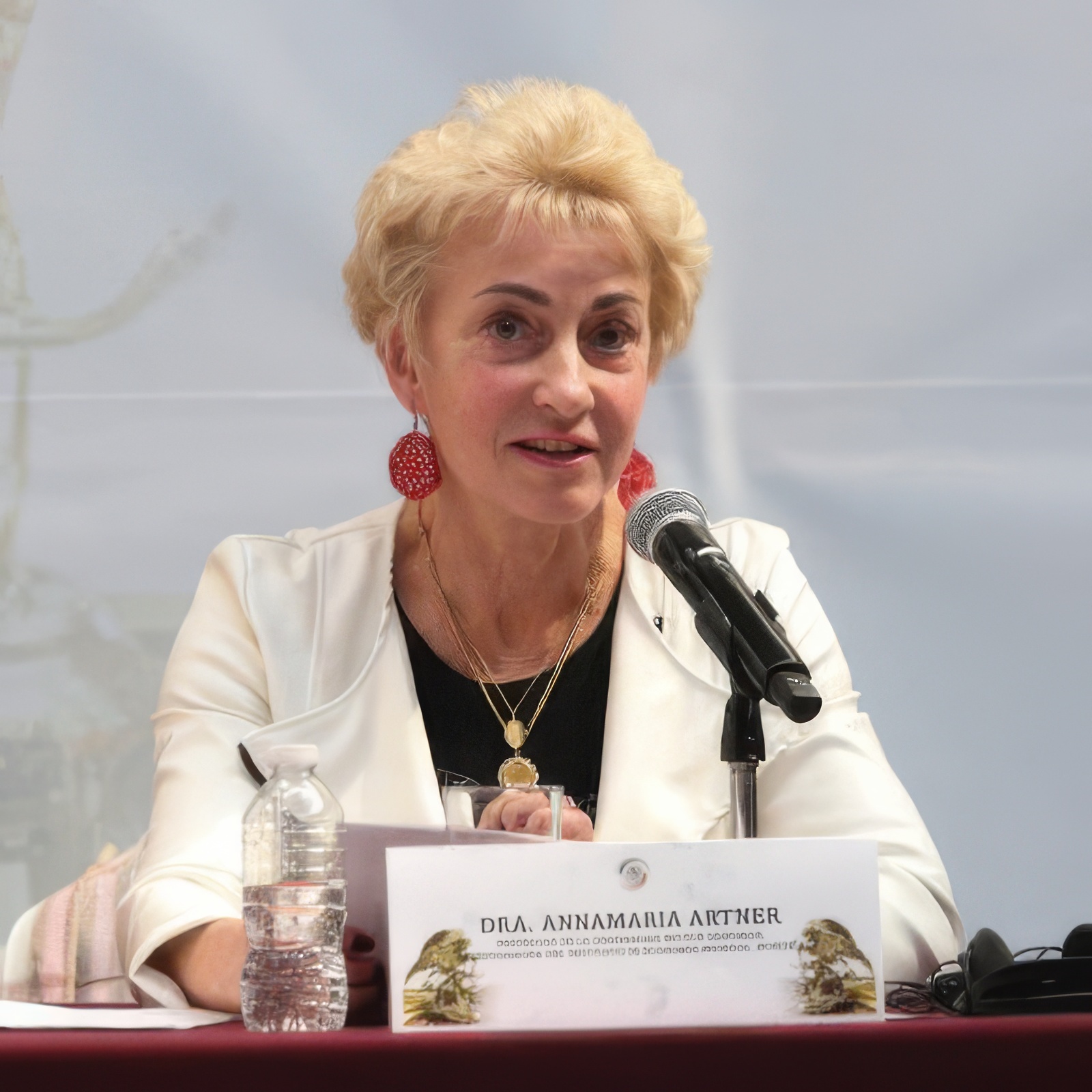What is an energy cooperative?
Statutory definition:
energy cooperative – a cooperative within the meaning of Article 1 § 1 of the Co-Operative Law of September 16, 1982 (Journal of Laws of 2021, item 648 and of 2023, item 1450) or a farmers’ co-operative within the meaning of Article 4(1) of the Act of October 4, 2018 on Farmers’ Co-Operatives (Journal of Laws of 2073 and of 2023, item …), the object of whose activities is the production of electrical energy or biogas, or agricultural biogas, or biomethane, or heat in renewable energy source installations, trading in them or their storage, performed as part of activities carried out exclusively for the benefit of such cooperatives and their members;”
An energy cooperative is an organization aimed at the joint production, trading, storage, and distribution of electrical energy, biogas, biomethane, or heat, as well as other forms of energy from renewable sources. It operates for the benefit of its members, who are individuals or legal entities that voluntarily join it. Members of the cooperative jointly manage its operations and benefit from the generated profits. An energy cooperative has its own legal personality, which means it can operate independently and make decisions through its governing bodies, with its activities regulated by its statutes.
Energy cooperatives and the development of renewable energy
Energy cooperatives are one form of citizen energy.
Citizen energy is a system where private individuals, organizations, institutions, and businesses outside the energy sector actively participate in the generation, transmission, and management of energy.
Energy cooperatives offer the possibility of generating energy for their own needs, both for the cooperative itself and its members.
The operational area of an energy cooperative is determined based on the energy consumption points it specifies, which include:
- energy consumption points of electrical energy producers and consumers who are members of this energy cooperative, connected to a specific electrical energy distribution network with a nominal voltage lower than 110 kV;
- connection points to the heating network for heat producers and consumers who are members of the energy cooperative;
- connection points to the gas distribution network for producers and consumers who are members of the energy cooperative, or places of production and consumption of biogas, agricultural biogas, or biomethane from renewable sources;
Opportunities from the development of energy cooperative (economic and environmental)
- Local resource management
- Energy supply security
- Improvement of quality of life
- New development opportunities
- Environmental protection
- Improvement of financial condition
- Green image
- Building network-based business connections based on collaboration
Conditions for obtaining the status of an energy cooperative
Commencing operations:
- a cooperative must be established in accordance with cooperative law and the appropriate registration process must be conducted in the National Court Register. From the moment of registration, the cooperative gains legal personality.
- registration with NSCA. Obtaining an entry in the energy cooperative list maintained by the General Director is contingent upon meeting the specified statutory requirements related to the permissible area of energy cooperative activities and the installed capacity of the RES installations used by the cooperative for energy production.
- Agreement with the energy supplier.
The energy supplier, upon the request of the energy cooperative, is obliged to, within no later than 90 days:
- Present an offer to conclude a new or amend the existing comprehensive agreement with a member of the energy cooperative indicated by the cooperative, as well as an agreement for the provision of trade balancing services with the producer indicated by the energy cooperative;
- Conclude an agreement with the energy cooperative, which will specify:
- The principles and deadlines for the energy cooperative to inform about changes in the number of members or energy consumption points;
- Settlement rules with individual members of the energy cooperative in areas not regulated by law;
- The method and conditions for providing measurement data to the energy cooperative and its individual members, including the scope and format of such data;
- The rights and obligations of the seller, the energy cooperative, and its members regarding the application of settlements, as well as the provision or transmission of information.
Stages leading to the establishment of the Energy Cooperative
STAGE I – Conceptual work
- Statutes of the EC
The statutes of the energy cooperative should comply with the principles arising from the Cooperative Law or the Act on Agricultural Cooperatives. Key elements that must be included in the statutes are:
- Name of the cooperative with the added word “cooperative” and its registered office.
- Scope of the cooperative’s activities and its duration, where it is established for a specified period.
- Amount of the entry fee, number and value of membership shares, and deadlines for their payment and refund.
- Rights and obligations of members.
- Rules for admitting members, terminating membership, and excluding members.
- Rules for convening general meetings, conducting discussions, and passing resolutions.
- Rules for electing and dismissing members of the cooperative’s governing bodies.
- Rules for distributing the balance surplus and covering the cooperative’s losses.
In the context of the energy cooperative’s activities, the statutes must comply with the provisions of the Renewable Energy Sources Act, and particularly specify:
- The scope of activities, e.g., the generation of electrical energy in photovoltaic systems for the cooperative’s own needs and those of its members, and the rules for settling energy surpluses.
- The rules for mutual settlements between the cooperative and its members for the energy produced and consumed.
- The rules for settling purchased energy in the event of a shortfall in own production.
After drafting the statutes, the founders of the cooperative adopt a resolution to approve it. The minimum number of members for an energy cooperative is:
- at least 10 natural persons,
- or at least 3 legal persons,
- or at least 5 natural persons in the case of an agricultural production cooperative.
- Election of cooperative bodies
Cooperative bodies:
- management
- supervisory board
- any other bodies provided for in the statutes.
Secret ballot from an unlimited number of candidates.
- Stakeholder analysis
This involves identifying, analyzing, and understanding the needs, expectations, and impact of various stakeholder groups on the operation of the Energy Cooperative (EC). Stakeholders include everyone who has a direct or indirect connection with the cooperative, including cooperative members, the local community, energy suppliers, regulatory bodies, and potential business partners.
- Assumptions of the EC development strategy
The strategy should include aspects such as expansion of RES infrastructure, optimization of energy management, development of new products and services, as well as community education and involvement. These assumptions should comply with legal frameworks and regulations concerning Renewable Energy Sources (RES), and also be balanced with the needs and expectations of stakeholders.
- Guidelines for EC settlements
These include the principles of settlements with cooperative members for the supplied energy, external settlements with suppliers and consumers of energy, as well as the method of settling energy surpluses generated by the cooperative.
- Implementation of the EC energy balance
The implementation of the energy balance of an energy cooperative is the process of assessing and monitoring the balance between electrical energy generation and consumption within the cooperative. A key element of this process is the analysis of the operational profile of renewable energy sources compared to the electrical energy consumption profile of the cooperative members. The goal is to ensure that energy production aligns as closely as possible with its consumption, minimizing the need to purchase external energy and optimizing the operational costs of the energy cooperative. A well-executed energy balance contributes to the sustainable development of the cooperative and maximizes benefits for its members.
STAGE II – Registration in the National Court Register
– Resolution of the Municipal Council to join the energy cooperative (applies to local government units)
– Founding meeting of the energy cooperative
– Notification to the National Court Register
– Registration procedure
The entry of the cooperative into the National Court Register is made based on an application.
The application must include the cooperative’s statutes and the record confirming the election of the management board and the supervisory board.
PLN 500 – registration fee
PLN 100 – fee for announcing the registration in the Court and Economic Gazette
STAGE III – Registration with NSCA
The application for inclusion of data in the register of energy cooperatives is submitted to the Director General of the National Support Centre for Agriculture (NSCA) along with a declaration of the truthfulness of the data contained therein.
Applications can be found below: https://www.gov.pl/web/kowr/zatwierdzenie-w-wykazie-spoldzielni-energetycznych
Being listed in the NSCA register signifies the commencement of full-fledged operations of the Energy Cooperative (EC), including the obligation for the energy supplier to settle energy at a ratio of 1 to 0.6, which lasts for the duration of the cooperative’s data being in this register.
STAGE IV – Development of the EC
The strategy for the local energy market development with the participation of energy cooperatives includes the following elements:
- Inventory of local energy resources – Conducting a detailed analysis of the existing energy infrastructure in the area covered by the strategy and assessing the potential for energy production.
- Feasibility studies, business plans, technical documentation, construction designs – Development of detailed feasibility studies, business plans, and complete technical documentation and construction projects, which will serve as the basis for implementing projects within the strategy.
According to the provisions of the Renewable Energy Sources Act, an energy cooperative is required to submit annual reports to the Director General of the National Support Centre for Agriculture, which must include the following information:
- the amount of electrical energy, biogas, or heat produced;
- the amount of energy consumed by the members of the energy cooperative.
These reports should be submitted on a monthly basis, within 60 days after the end of the calendar year.
Objectives of Energy Cooperatives
The objective of the Cooperative is to produce electrical energy from renewable energy sources for the needs of its members and to organize the supply and reception of electrical energy among the members of the Cooperative, aiming to reduce costs associated with purchasing electrical energy and to increase the revenue of the Cooperative members from the sale of produced electrical energy.
Energy derived from renewable energy installations can be cheaper for several key reasons. First and foremost, the net-metering system, which allows for the use of self-produced electrical energy for personal needs, significantly reduces the cost of purchasing energy from the grid. Moreover, projects in renewable energy technologies involve lower project risk compared to traditional energy sources, which translates into lower financial costs.
The absence of fees related to renewable energy sources, such as the RES fee, distribution, or capacity fees, also contributes to reducing energy costs. Additionally, access to preferential financing supports further reduction of initial project costs in RES technologies.
The ability to actively manage energy production, enabling optimal use of generated energy, along with modern technologies used in renewable energy sources, contributes to increased efficiency and reduced operational costs. The development of new operational opportunities in the RES sector creates additional options for efficient and cost-effective energy management.
Energy generated by an energy cooperative can be used exclusively for the needs of the cooperative or its members. Selling energy to other consumers or trading companies under conditions assigned to energy cooperatives is not possible. If the cooperative wants to sell energy to other entities, it must do so under the so-called general terms. In such cases, the cooperative is treated as an energy enterprise and is subject to appropriate regulations, including the requirement to obtain necessary licenses.
Settlements of Energy Cooperatives

| SPÓŁKA OBROTU | TRADING COMPANY |
| Płatność za usługę dystrybucyjną | Payment for distribution service |
| FV za usługę dystrybucyjną | Invoice for distribution service |
| SPÓŁKA DYSTRYBUCYJNA | DISTRIBUTION COMPANY |
| FV za energię elektryczną (obrót) i usługę dystrybucyjną | Invoice for electrical energy and distribution service (trade) |
| Płatność za energię elektryczną (obrót) i usługę dystrybucyjną | Payment for electrical energy and distribution service |
| Płatność za energię elektryczną (wytworzenie) | Payment for electrical energy (generation) |
| SPÓŁDZIELNIA ENERGETYCZNA | ENERGY COOPERATIVE |
| Nie ma płatności za usługę dystrybucyjną | There is no payment for distribution service |
| Płatność za energię elektryczną (obrót) i usługę dystrybucyjną | Payment for electrical energy and distribution service |
| FV za wytworzenie energii elektrycznej | Invoice for electrical energy generation |
| FARMA PV | PV FARM |
| Odbiorca energii | Energy consumer |
| Wytwórca energii | Energy producer |
| FARMA PV „B” | PV FARM “B” |
| SPÓŁKA „X” | COMPANY “X” |
| FV za energię elektryczną (obrót) i usługę dystrybucyjną | Invoice for electrical energy and distribution service (trade) |
(image source: https://www.gov.pl/attachment/237ea874-3c26-4cf1-8736-b1656c546dc5)
The net-metering system and exemptions from a range of fees, such as the RES fee, have been maintained for energy cooperatives. In practice, this means that the surplus electrical energy generated by cooperative members from renewable energy sources (RES), which exceeds their own consumption, is settled with the electrical energy seller on a net-metering basis at a ratio of 1:0.6. In other words, for every 1 MWh of energy fed into the grid beyond the amount consumed, cooperative members can retrieve 0.6 MWh.
Both the distribution system operator and the obligated seller are required to enter into appropriate agreements with the energy cooperative. The settlement of the amount of energy introduced into the distribution network and drawn from this network is carried out based on the readings of metering devices connected to the network of each cooperative member.
The amended provisions of the Renewable Energy Sources Act of 2023 clearly specify that the settlement period is one calendar month. The fulfillment of the energy settlement obligation by the obligated seller is conducted based on a comprehensive agreement concluded with each cooperative member, taking into account the amount of energy produced by the cooperative or its members.
According to Article 38da(1), the distribution system operator, in the area where the cooperative plans to operate in the field of renewable energy production, is obliged to enter into a distribution service agreement or amend the existing agreement to enable the seller to make settlements, within 21 days from the submission of the relevant application by the cooperative. Additionally, the operator is required to install remote reading meters for each cooperative member within 4 months from the submission of the application by the cooperative.
Producers and consumers of energy should have remote reading meters that separately register the amounts of electrical energy:
- introduced into the distribution network,
- drawn from the distribution network.
Exemptions from certain fees
No fees are charged to the energy supplier for the energy generated in all renewable energy installations and consumed by consumers, including energy settled under the net-metering system. Distribution service fees, dependent on the amount of energy fed into the grid and consumed by members, are paid up to the amount resulting from the surplus of energy production over its consumption. These dues are transferred to the operator by the energy supplier.
Regarding energy settled under the net-metering system, the energy cooperative and its members are exempt from calculating and paying the following fees:
- variable distribution fees (including the variable component of the network rate and the quality rate),
- fee for renewable energy sources (RES fee),
- capacity fee,
- cogeneration fee,
- excise tax, provided that the total installed electrical capacity of all renewable energy installations belonging to the energy cooperative does not exceed 1 MW.
Additionally, the energy cooperative and its members are exempt from the obligation to redeem energy origin certificates.
Duties of the Distribution System Operator
Distribution System Operator (DSO) is an energy company responsible for the distribution of electrical energy or gas, accountable for:
- Network traffic within the distribution system.
- Current and long-term operational safety of the system.
- Operation, maintenance, repairs, and expansion of the distribution network, including connections with other systems.
The power distribution system operator, in whose area an energy cooperative plans to commence activities in the field of electrical energy generation from renewable sources, is obliged to:
- Conclude or amend a distribution service agreement with the energy supplier to enable the settlement of the energy cooperative, within 21 days from the date the cooperative submits an application in this matter.
- Install a remote reading meter for each member of the energy cooperative within 4 months from the date of application for the installation of such a meter.
If you have any questions or concerns regarding the above matter, please do not hesitate to contact our experts:
Piotr Włodawiec: wlodawiec[at]prokurent.com
Łukasz Moczydłowski: moczydlowski [at] prokurent.com
Paweł Wróblewski: 'p.wroblewski [at] elbudbis.pl
Authors:
Piotr Włodawiec – Attorney-at-law / Senior Partner
Łukasz Moczydłowski – Attorney-at-law / Senior Partner
Paweł Wróblewski – CEO ElbudBis
Relkonds
Material prepared in collaboration with:


 7 miesięcy temu
7 miesięcy temu








